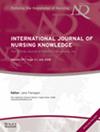The use of theory or model in studies on postpartum care: A narrative review
Abstract
Purpose
It is aimed to raise awareness about the science of nursing for women's health and the use of nursing theories and models in research by reviewing the studies using theories or models in postpartum care.
Data sources
The data of the study were obtained by searching YÖK National Thesis Center, EBSCOhost, PubMed, Web of Science, Cochrane, and ScienceDirect databases. Reviewed studies were analyzed in terms of the type of research, sample characteristics, purpose, the field of use of theory and model in the research, and research results.
Conclusions
As a result of the review, it was noted that in the studies, Orem's Self-Care Deficit Nursing Theory/Model (n = 9), Roy's Adaptation Theory (n = 7), and Kolcaba's Theory of Comfort (n = 7) were the most used theories, theories and models were not used in a systematic structure at every stage of the research, and positive outcomes were obtained with the theory and model-based nursing interventions.
Implications for nursing practice
The application of theory and model in postpartum care can be chosen by nurses as it improves patient outcomes. Furthermore, the use of theories and models in research to develop nursing knowledge will benefit nursing science while increasing professional autonomy.

 求助内容:
求助内容: 应助结果提醒方式:
应助结果提醒方式:


